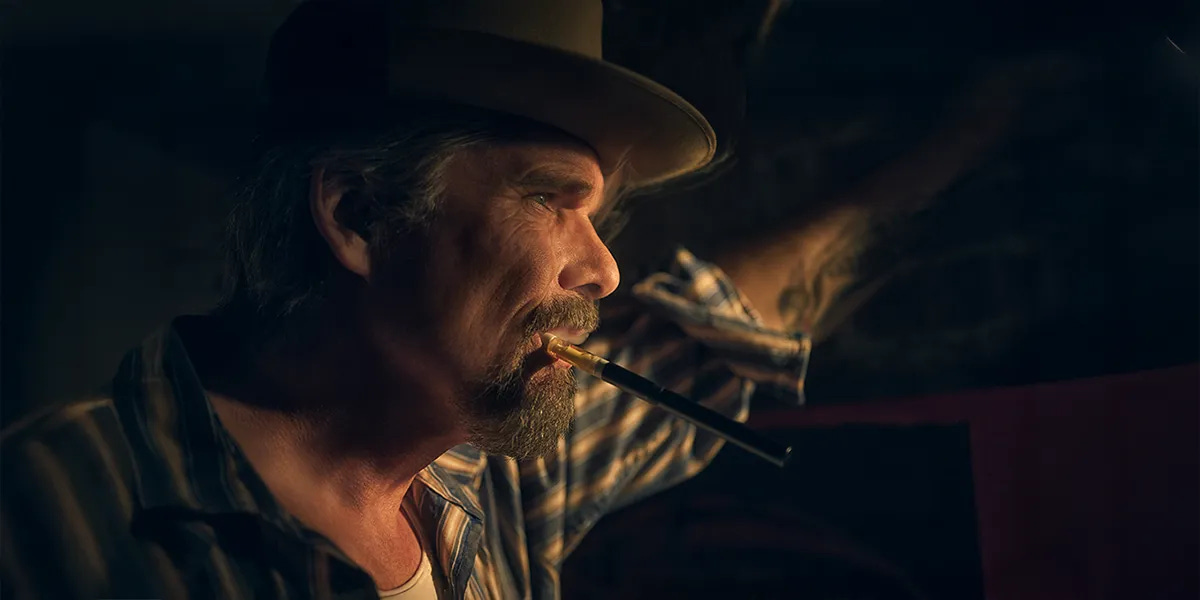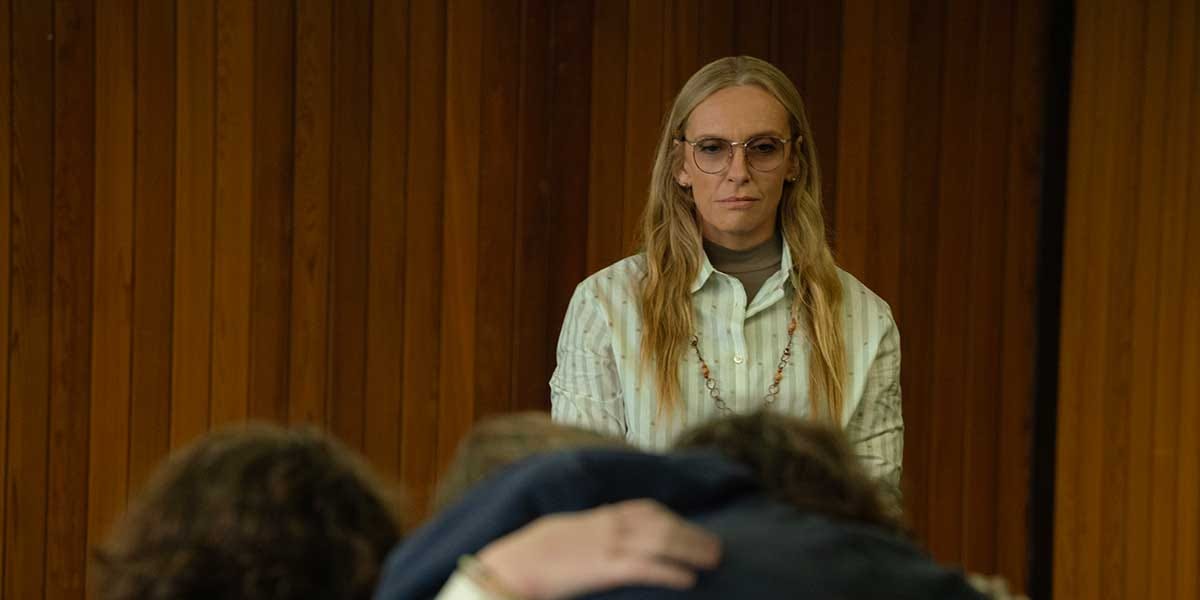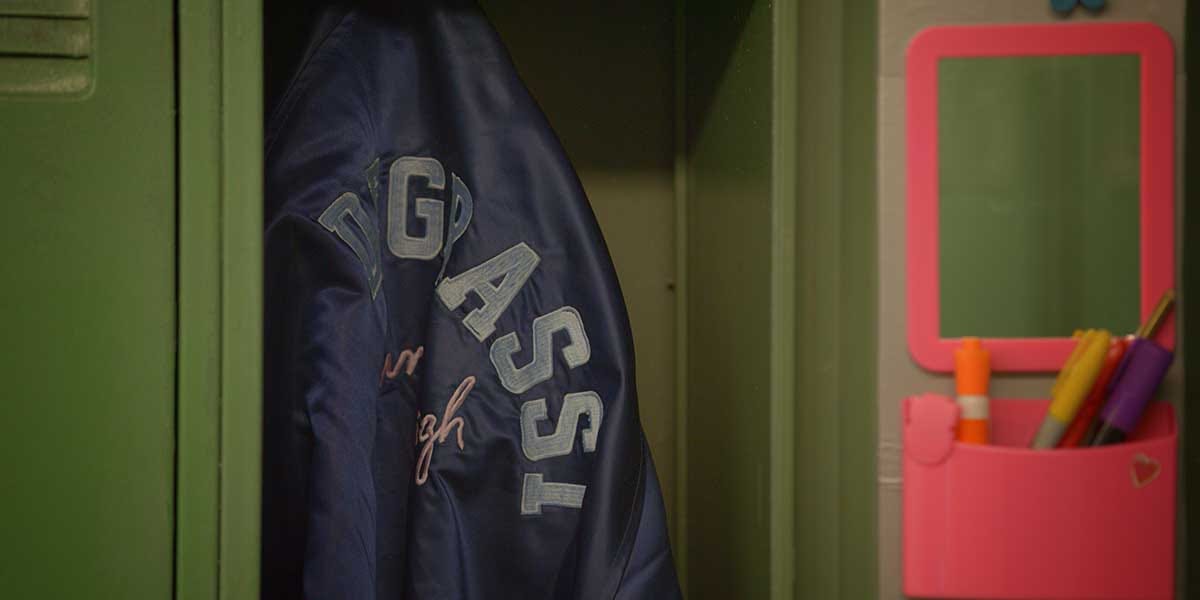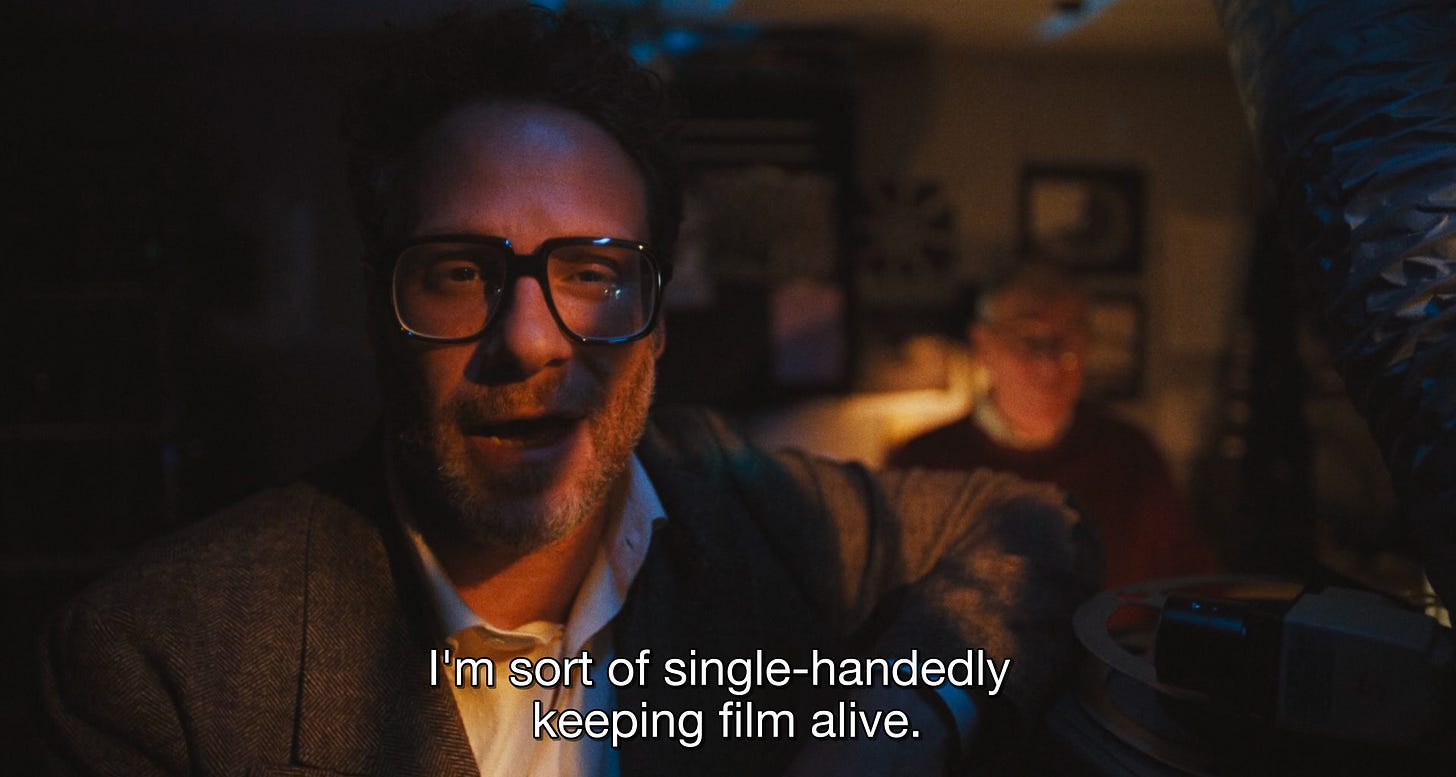TIFF 2025 diaries
Everything I watched and thought at the Toronto International Film Festival this year.
Did I “do” TIFF right? My week at the Toronto International Film Festival was overwhelming, delightful, tiring, surprising, unexpected, emotional, and confusing. Let me explain.
I first attended the Toronto International Film Festival on a student pass back in 2016, which gave me access to “rush” lines. I remember being shuffled in for A Quiet Passion starring Cynthia Nixon, seated in the very front row after waiting a couple of hours outside. Nixon’s face was massive from that angle. I had drinks at hotel bars in the hopes of spotting familiar faces. I randomly saw Taraji P. Henson exit a vehicle. I remember being in awe of the experience, of TIFF’s programming, of a film festival that premieres television.
This time around, nearly a decade later and on a press pass, I had no idea what kind of access to expect. And I was woefully unprepared — for the amount of emails, the party invites, the volume of available screenings, and I think most of all, where I locate myself in the midst of it all. I don’t even think I like movies that much? Gasp, I know. I’ve carved out a niche writing about television for a reason. I’ve always enjoyed seeing films, but mostly as a communal experience with friends. It wasn’t until I became a voting member of the Dorian Awards that I took it way more seriously, locking in to my film screeners and attending the Vancouver International Film Festival to fill my ballot. TIFF was an experiment of sorts. Could I extend my coverage to film, for the sake of better financial security? Or could I approach the festival as a telephile, watching mostly TV premieres and films that star actors I revere for their work on television rather than film?
I’m only good at what I do (that is, keeping it all together between writing, watching, and working a full-time job…well, that last part is about to change very soon but that’s a whole other newsletter) because of the routines I’ve carved out for myself. When my soup of the week and my workout classes and my sleeps are disrupted, I begin to unravel at the seams, my mind a slurry of existential thoughts and anxieties, unable to put pen to paper long enough for a coherent thought. Halfway through the festival, I overheard one writer say they were five reviews behind. I couldn’t fathom trying to fill a schedule with 6-9 hours of screenings (plus waiting in lines) and trying to file reviews as quickly as possible; incredible work these critics do. For me, it didn’t end up being too much of a surprise when I woke up on the sixth day of the festival with a sore throat, my 6-hour sleeps and running around catching up with me. After all, I did attend three parties on one Sunday, each of them a blur of free drinks and conversations with various industry folks, usually surveilled by a sectioned-off area where the stars could chat in peace without being asked for selfies.
I got to watch a lot, still: 11 screenings in total, 9 films and two shows, many of them red carpet premieres with Q&As with the cast and director. I attended four TIFF parties. I had full informal conversations with Kyle Gallner (Carolina Caroline), Maude Apatow (Poetic License), quick hellos with some others, told Dylan O’Brien he’s something of a gay icon (“yeah, so I’m told,” he said), finally met some folks I’ve only known online, and breathed the same air as Angelina Jolie at the Couture afterparty. I filmed a segment for CBC’s Here & Queer hosted by the lovely Peter Knegt to chat about queer television (this was the day before I got sick and I have no idea what I even said).
It was all otherworldly, to say the least. I got hit with simultaneous waves of imposter syndrome and gratitude. I felt both connected and somewhat lonely (everyone in this industry seems to know each other! I was often floating around on my own, sitting in coffee shops waiting to line up for my next thing). Every time someone screamed at the top of their lungs or I saw the massive crowds waiting outside of hotels, restaurants, and venues, I thought of the exhausting cult of celebrity. In between moments of awe and fatigue I wondered if I should have reached out to more editors to extend my coverage of the festival, but then I would have spent the entire week writing instead of absorbing it all.
I spent the last leg of my TIFF experience destroyed and stuck in bed, and I’m still sneezing and coughing back home as I write this, but I still had a hell of a time. Here are some things I watched.

The Lowdown (FX) (created by Sterlin Harjo)
Premiere: September 23, 2025
Grade: A
I can’t overstate how phenomenal Ethan Hawke is in The Lowdown. To be clear, this is not Reservation Dogs (although both are set in Oklahoma), but it is an excellent follow-up for Sterlin Harjo. Hawke plays Lee, a self-proclaimed “truthstorian” who owns a rare book store in Tulsa, while uncovering corruption (which gets him in hot waters) as a journalist for a local publication — a character inspired by someone who worked with Harjo at a magazine during his time in Oklahoma.
What struck me is how immediately lived-in this world feels, and although it’s definitely Noir-inspired, there’s a sense of otherworldliness going on that I’m curious to see how the show builds on. At the post-screening Q&A I attended, Harjo and Hawke both teased guest stars including Peter Dinklage, who appears in episode five, and Graham Greene, in one of the last roles before his death. “As Reservation Dogs came out, my whole attitude about what could happen on television changed,” Hawke said. “I started having this thought that if the French New Wave was happening today, where would it be happening? It wouldn’t happen in the same way, it might be happening on television.”
Harjo also made it a point to compliment FX on their desire for his original stories, which are not based on any pre-existing intellectual property. “I kind of got sick of middle-of-America shitty TV shows that are really popular, I won’t mention names,” Harjo said. “That’s not what I see. Where I’m from, it feels like there’s an appreciation for art.”
Is it gay? For those not familiar with this newsletter (welcome!), I always pass my shows through gaydar for my queer readers. Unfortunately, with only one episode watched, I cannot confirm gay at this time, but there may be hope for the rest of the season.

Wayward (Netflix) (created by Mae Martin & Ryan Scott)
Grade: B+
I’ve been eagerly awaiting Mae Martin’s follow-up to their gentle but existential comedy Feel Good. Similarly to Harjo, Wayward is a departure from that debut’s tone, leaning more thriller than comedy (although the audience definitely giggled at a few of Martin’s line deliveries). I liked Wayward, but because so much of the mystery feels under wraps after two episodes, I need to watch more of the season to figure out where it’s headed. I’m commissioned to write about it so I’ll have more to say soon, but the story is inspired by Martin’s childhood friend who was sent to a correctional school for troubled teens and later escaped to tell the tale. The story begins splintered between two unruly teens in Toronto whose parents send them to one of these such “schools” in the small town of Tall Pines, where Martin and Sarah Gadon, a young couple expecting a baby, have just moved to. Spooky intrigue abound.
Is it gay? Well yes! Lots of queer shit going on here, thankfully.

Degrassi: Whatever It Takes (dir. Lisa Rideout)
Grade: A
Degrassi is revered in Canada, obviously, but for some reason it wasn’t really a hit in my household. It just seemed like a show that was always on, and I didn’t watch it frequently enough to understand any of the characters. Then spending my high school years in Seattle, I fell more on the Skins side of things in terms of high schoolers on television. But regardless of that context, I found the Degrassi documentary very moving and insightful about the history of teens on TV. A thoughtful section showcases the three different abortion scenes that have been featured on the show, each in the next generation of characters. Degrassi creator Linda Schuyler admits the show doesn’t always get it right — especially in regards to race, or payment of its young actors, but it was always on the cutting edge of television.
Is it gay? Degrassi featured the first trans character to ever be portrayed on television, as well as multiple queer characters! A gay show indeed.
Television screenings I was unable to attend due to the plague: Black Rabbit (Netflix), Reunion (BBC/Showtime); Portobello (HBO Max), Gandhi.
Films & their television relevance
The Secret Agent ⭐️⭐️⭐️ (dir. Kleber Mendonça Filho)
Stars Wagner Moura, who has delivered impressive television performances on The Dope Thief, Mr. & Mrs. Smith, and Shining Girls. He’s impressive here too in this drama set in 1970s Brazil, in a film that holds its cards a little too close to the chest. I had no idea what was going on until closer to the final act, and at that point I was left feeling it was somewhat anticlimactic. But thoughtfully directed with nice-looking production design (love the old phone booths).
Dinner with Friends ⭐️⭐️ (dir. Sasha Leigh Henry)
Stars a few actors who I’m fond of including Tymika Tafari (Slip, Settle Down), Leighton Alexander Williams (Settle Down), Tattiawna Jones (Murderbot, Orphan Black: Echoes). Unfortunately didn’t love this one, but the Four Seasons concept of catching up with a friend group over multiple dinner parties is quite fun.
Carolina Caroline ⭐️⭐️⭐️½ (dir. Adam Carter Rehmeier)
A crowd pleaser! Kyle Gallner (Veronica Mars) and Samara Weaving (Nine Perfect Strangers, SMILF) star as a Bonnie and Clyde-type con couple whose crimes escalate beyond their ability to run away from it. It was propulsive and zippy, but also had a bit more heart than I expected for a story like this. I loved Gallner’s monologue about ethical shoplifting.
Poetic License ⭐️⭐️⭐️⭐️ (dir. Maude Apatow)
A charming directorial debut for Euphoria’s Maude Apatow! Leslie Mann stars as an ex-therapist who moves to a college town for her husband’s new professorship. She starts auditing a poetry class (taught by Euphoria’s Martha Kelly, a scene-stealer here) and befriends two classmates who quickly develop a crush on her (Cooper Hoffman and Andrew Barth Feldman). This was the kind of movie where the audience was laughing so hard I would miss an actor’s next line, and has all the markers of a cozy re-watch that I’m sure will make it an Apatow family classic for years to come.
Couture ⭐️⭐️⭐️½ (dir. Alice Winocour)
Another Angelina Jolie serve! Taking place during Paris Couture Fashion Week, an American filmmaker is invited to Chanel to shoot a short fashion film, during which she finds out some distressing personal news. Meanwhile, the film cuts across to a Sudanese girl in Paris trying out modelling as an alternative to pharmacy school (based on Anyier Anei’s real-life story), and to a makeup artist who’s trying to write a book based on her experiences in between clients (Ella Rumpf, Tokyo Vice). The thread that connects each of them is war: In Sudan and Ukraine, and war with the body/self.
Hedda ⭐️⭐️⭐️ (dir. Nia DaCosta)
I went to the Hedda afterparty and I desperately wanted a chance to tell Tessa Thompson that she deserved an Emmy nomination for the Westworld season three episode “The Absence of Field” (iykyk). Hedda was a good time! A lesbian twist on the stage play with terrific performances by Thompson and Nina Hoss.
Eternity ⭐️⭐️⭐️½ (dir. David Freyne)
Sorry for Your Loss and WandaVision’s Elizabeth Olsen stars in this The Good Place-esque film where she finds herself in the afterlife, reunited with both her first husband who died in war, and her most recent husband who she spent most of her life with. I wasn’t initially sold by the premise but the film won me over — even brought me to a few tears by the end.
The Testament of Ann Lee ⭐️⭐️⭐️⭐️ (dir. Mona Fastvold)
I would say Ann Lee is my top pick from what I got to see. Amanda Seyfried (The Dropout) absolutely soars in a magnificent performance as the founder of the Shakers, a celibate sect of Christianity that emerged in mid-18th century England and eventually moved to the United States. The film turns their…enthusiastic worship sessions into choreographed dance and singing, although it doesn’t fall neatly into the categorization of musical. It felt grand and epic, despite receiving the same small budget as The Brutalist.



